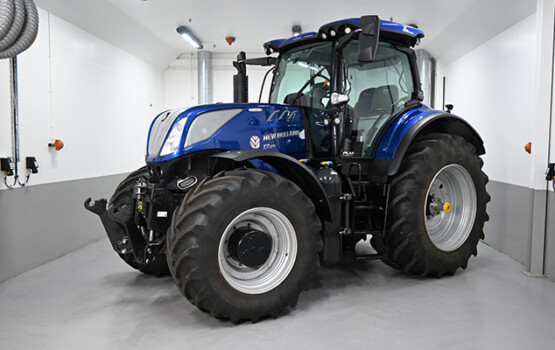Portal for more climate-friendly mobility
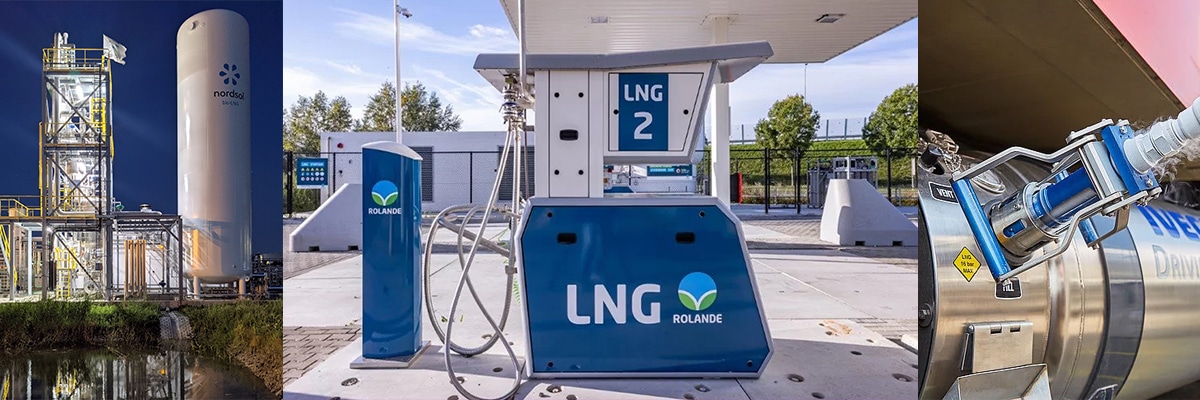
More bio-LNG for the whole of Europe
The network of LNG and bio-LNG filling stations is growing throughout Europe – there are now more than 600 stations. In addition to heavy traffic, shipping will soon also benefit from more bio-LNG and thus become more sustainable. This is made possible by the cooperation between Attero, Nordsol and Titan.
Source: NGVA Europe
In the central Dutch town of Bodegraven, not just any old LNG filling station has started operations, but the 600th one in Europe which provides liquefied gas for the transport of goods. The filling station also represents the increasing sustainability considerations currently taking place in freight transport. “LNG is already more sustainable than diesel,” explains Jolon van der Schuit, CEO of Rolande. “Bio-LNG enables heavy-duty road vehicles to reduce their CO2 emissions by up to 100% compared to diesel. Bio-LNG thus makes a significant contribution to the European Union’s goal of becoming climate-neutral by 2050.”
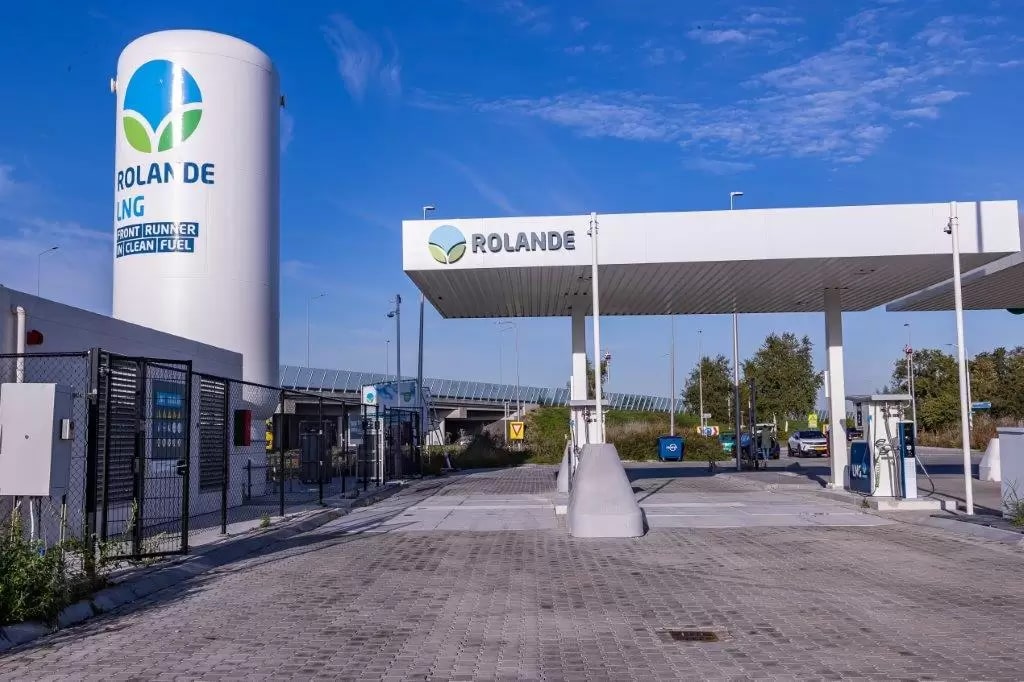 Europe’s 600th LNG filling station is located in Bodegraven in the Netherlands. According to the industry association NGVA Europe, there are now 4151 CNG and 604 LNG filling stations across Europe – as of mid-November 2022. Source: Rolande
Europe’s 600th LNG filling station is located in Bodegraven in the Netherlands. According to the industry association NGVA Europe, there are now 4151 CNG and 604 LNG filling stations across Europe – as of mid-November 2022. Source: Rolande
Rolande and BP’s new filling station is another important building block on the way to establishing a Europe-wide LNG network. It is located at an important logistical hub in the Netherlands, but it also has a strong regional function. Bodegraven is already the thirteenth LNG filling station operated by energy provider Rolande in the country. The use of LNG is also the first and best step towards bio-LNG. Rolande produces bio-LNG, which is made from biogas from landfill waste, wastewater treatment or fermentation plants. The biogas is collected, purified and liquefied. This process results in a CO₂ reduction of no less than 80% throughout the entire production chain.
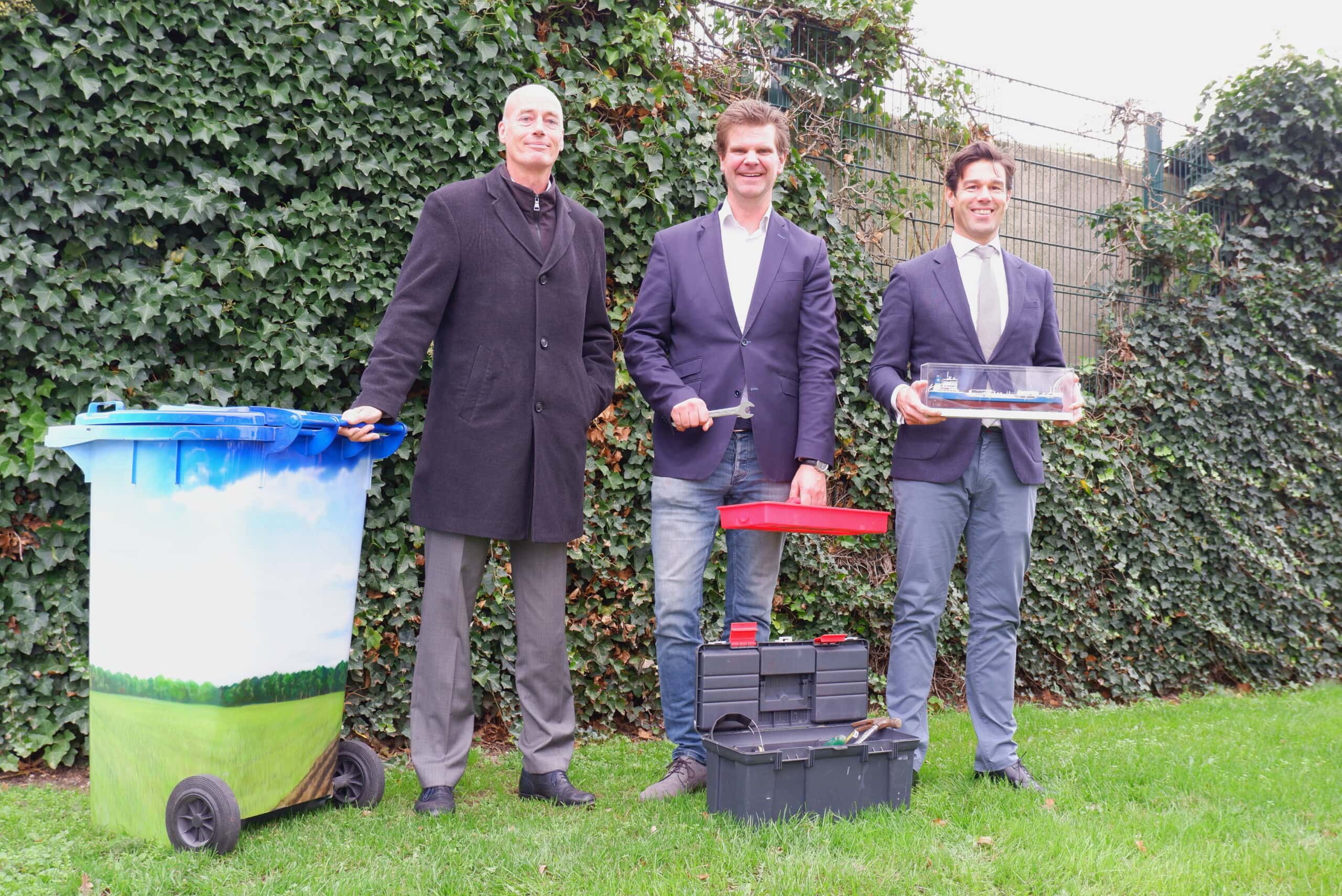 Paul Ganzeboom (CEO Attero), Wouter Zijlmans (CEO Nordsol) and Ronald van Selm (CTO Titan) met at the site of the new bio-LNG production facility to pave the way for their cooperation. Source: Nordsol
Paul Ganzeboom (CEO Attero), Wouter Zijlmans (CEO Nordsol) and Ronald van Selm (CTO Titan) met at the site of the new bio-LNG production facility to pave the way for their cooperation. Source: Nordsol
More ambitious sustainability targets and the need for energy independence have increased the demand for biogas in both gaseous and liquid form across Europe – not only in the heavy transport sector, where a large number of trucks with CNG and LNG engines are now on the road, but also in other sectors. As a result, three other Dutch companies from very different sectors have joined forces: the waste processor Attero, the bio-LNG producer Nordsol and one of the leading suppliers of LNG, Titan. They did so in order to implement a decentralised production of bio-LNG for use in the maritime industry. With their “FirstBio2Shipping” project, they want to produce around 2,400 tonnes of bio-LNG per year at a new plant in Wilp, thereby delivering the first bio-LNG for shipping from the start of 2024.
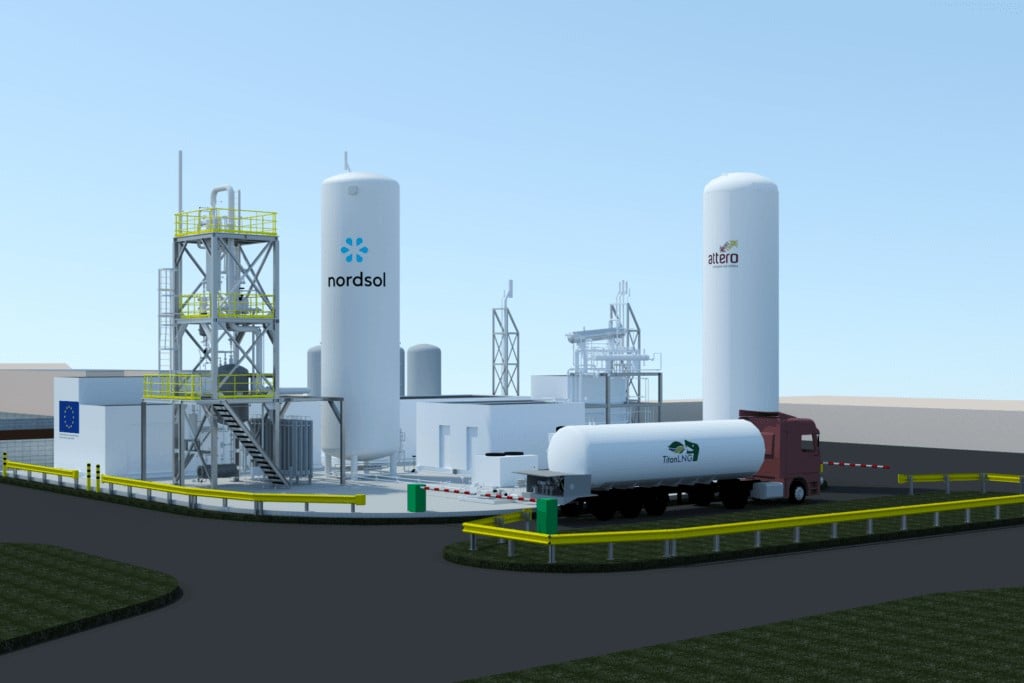 This is what the production plant for bio-LNG will look like one day. Source: Nordsol
This is what the production plant for bio-LNG will look like one day. Source: Nordsol
To that end, Attero will process domestic biowaste into six million Nm3 of biogas per year. Nordsol and Attero will then jointly extract 2,400 tonnes/year of high-purity bio-LNG and 5,000 tonnes per year of liquid bio-CO2. And Titan, as the exclusive buyer, will supply this bio-LNG to the maritime industry, where it will cost-effectively replace fossil fuels. “Nordsol is working with various partners to help bio-LNG make a breakthrough . In 2021, we built the first Dutch bio-LNG plant to make road traffic more sustainable. As a pioneer, we are proud to be working with Titan and Attero to help decarbonise the maritime sector,” explains Léon van Bossum, Commercial Director of Nordsol.
“The “www.firstbio2shipping.nl” project is intended to trigger a snowball effect that will lead to more and larger facilities that will help to make shipping more sustainable,” says van Bossum. The bio-LNG produced will reduce greenhouse gas emissions by 92 per cent compared to conventional marine fuel, which corresponds to an absolute net emission reduction of more than 87,500 tonnes of CO2 in the first ten years of operation. (pd/jas, 15 November 2022)
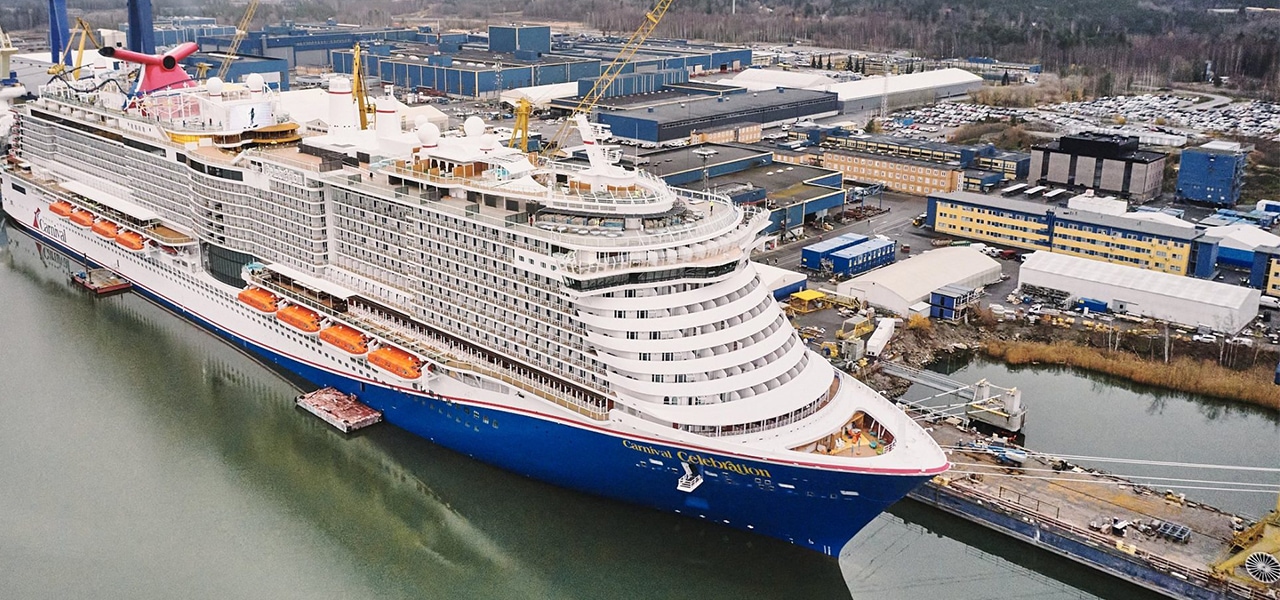 The 185,000 gross register Carnival Celebration cruise ship with its state-of-the-art LNG propulsion system was laid down on the outfitting keel at the Meyer Turku shipyard in Finland. Source: Meyer Turku
The 185,000 gross register Carnival Celebration cruise ship with its state-of-the-art LNG propulsion system was laid down on the outfitting keel at the Meyer Turku shipyard in Finland. Source: Meyer Turku
You might also be interested in
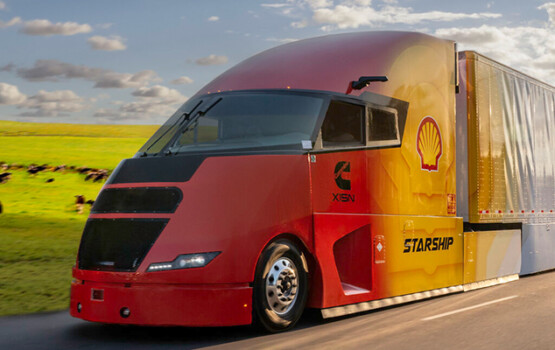
Shell Starship on record hunt
